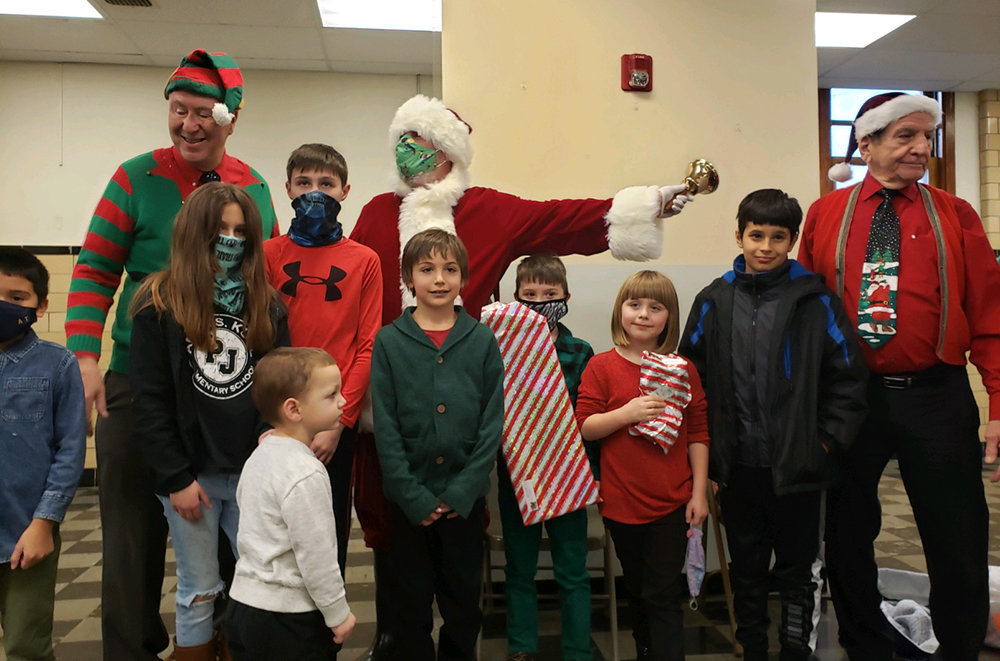
Knights of Columbus 444 delighted children at their Council Christmas party with holiday songs and fun games, great foods and a very spirited Santa Claus and Elf.
By Louise Haight
What a fun week exploring Christmas around the world. Miss Liz’s class at Tots-N-Us observed Las Posadas, a novenario celebrated chiefly in Latin America, Mexico, Guatemala, Honduras, Cuba, Spain, and by Hispanics in the United States. The tradition came to Mexico from Spain in the 1500’s by Catholic Missionaries. The Posadas, in Spanish, means dwelling or lodging, and it commemorates Mary and Joseph’s difficult journey from Nazareth to Bethlehem, as they search for a place for the Christ Child’s birth. The Posadas begin on Dec. 16, for nine evenings and culminates on Dec. 24 and at Midnight Mass.
The Posadas are not a Christmas party, but a religious event. In Catholic parishes, parishioners meet at the church during the early evening, and the Posada begins with the Holy Rosary, a beautiful prayer to Mary, the Mother of God.
After a part of the Rosary is prayed, they proceed to the local neighborhood. A group, carrying a manger with a live donkey, and some dressed like Mary and Joseph go to three houses who turn down the Holy Family. They stand in front of each house and sing a song in Spanish asking to enter the house. A small group inside the house respond in song refusing entrance.
The group continues to the Posada House and repeat their song and this time they are welcomed into the house where they will have the Posada dinner.
Each Posada ends with the traditional Pinata. The candy within each pinata symbolizes the sweetness of God’s Grace made available to us through the birth of Jesus. Feliz Navidad!
Happy Kwanzaa to our African-American neighbors who celebrate this holiday, a time of joy and reflection on their past, as well as their current life in America, from Dec. 26 through Jan. 1. Kwanzaa has its roots in African harvest festivals and means “first fruit” in Swahili, a widely spoken language in east Africa. Holiday rituals of lighting candles, the Kinara is lit each night to symbolize one of seven principles: unity, self-determination, collective work and responsibility, cooperative economics, purpose, creativity, and faith. Reciting prayers, singing songs, and gift-giving symbolize the year-round spirit of Kwanzaa and the unity and faith of the African-American family and community. The week of celebration ends with a Karamu, or feast, visits from friends and relatives, who bring food to be shared at the home of the host.
This new year, let us give to others genuine love and joy with hope and faith, in the goodness of mankind everywhere of different faiths and ethnic origins. We must remember our own gifts, let it be a part of ourselves that we give, for then the receiver and the giver will be blessed. It’s true that if we allow the little children be our guiding stars, who have no prejudice or hatred in their pure innocent hearts, we may blend into a world of love and peace and joy forevermore. Reflecting on the sweetness of children everywhere, simply rediscover the child’s heart in you. It’s there, open the door and wait with joy. Happy Blessed New Year to all of us.
May you always have an angel at you side.